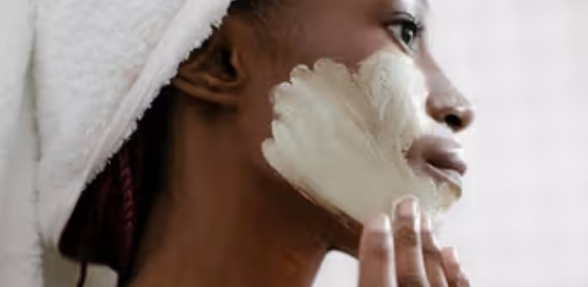While the popularity of DIY skincare has grown, not all natural or homemade remedies are safe for your skin. Some ingredients, though seemingly harmless, can actually cause irritation, damage, or other unwanted side effects. Here are five common DIY skincare ingredients you should avoid:
1. Lemon Juice
Lemon juice is often used as a natural brightening agent due to its high vitamin C content, but its acidity can cause more harm than good. With a pH level of around 2, lemon juice can disrupt the skin’s natural barrier, which has a pH between 4.5 and 5.5. This can lead to irritation, dryness, and even chemical burns, especially when exposed to sunlight. Instead, opt for a vitamin C serum specifically formulated for the skin to avoid these risks.
2. Baking Soda
Baking soda is commonly used in DIY exfoliants, but it has a high pH of around 9, which is far too alkaline for the skin. This disrupts the skin’s natural protective barrier, causing dryness, irritation, and making the skin more prone to infections. Instead, use pH-balanced exfoliants designed for facial skin to avoid stripping away your skin’s natural oils.
3. Toothpaste
Often used as a quick fix for pimples, toothpaste contains harsh ingredients like baking soda, hydrogen peroxide, and alcohol, which can irritate facial skin. Prolonged use can result in redness, irritation, and even chemical burns. Instead of toothpaste, opt for acne treatments with benzoyl peroxide or salicylic acid, which are formulated to treat blemishes safely.
4. Sugar
Sugar is a popular ingredient in DIY scrubs due to its exfoliating texture, but the coarse granules can cause micro-tears in the skin, leading to irritation and increased sensitivity. While sugar scrubs may be suitable for the body, the delicate skin on the face is better suited to gentle exfoliants or chemical exfoliants like alpha hydroxy acids (AHAs) or beta hydroxy acids (BHAs), which effectively remove dead skin without physical damage.
5. Coconut Oil
Though often praised as a natural moisturizer, coconut oil is highly comedogenic, meaning it can clog pores and lead to breakouts, especially for those with oily or acne-prone skin. Its thick texture makes it hard to absorb, leaving a residue that can trap dirt and bacteria. Instead, opt for lighter, non-comedogenic oils like argan or jojoba oil, which hydrate without clogging pores.
While DIY skincare may seem appealing, it’s crucial to recognize that not all natural ingredients are suitable for your skin. Choosing skincare products specifically formulated for your skin type can help you avoid irritation and long-term damage, ensuring healthy and glowing skin.
By avoiding these common DIY skincare ingredients, you’ll protect your skin and maintain its natural balance.

Leave a Reply